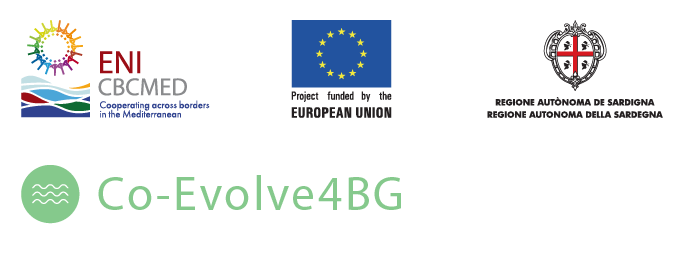 MONITORING TOOL
MONITORING TOOL
Co-Evolve4BG Indicators for Sustainable Tourism (underdevelopment)
Profile by ENI CBC MED ENSERESTO WHOM IS ADDRESSED?
Government agencies, local authorities, ministries, NGOs, tourism operatorsTHEME
TourismKEYWORDS
Indicators, sustainable tourism, tourism
WHAT PROBLEM WOULD THIS SOLVE?
The growth of tourism in the Mediterranean, especially in coastal areas, coupled with the effects of climate change, will continue to affect landscape, soil and coastal stability, put pressure on species and water resources and increase waste and pollution discharges into the sea. It is therefore important to analyse and promote the co-evolution of human activities and natural ecosystems in touristic coastal and marine areas towards sustainable development, including Blue Growth, based on the principles of Integrated Coastal Zone Management (ICZM) and Maritime Spatial Planning (MSP).
Aim of the tool
The aim of this set of indicators is to assess the sustainability of coastal and marine tourism at a local level.
Main objectives
The main objective of this set of indicators is to measure the sustainability of tourism in coastal and marine touristic destinations in the Mediterranean. The indicator system, specifically customised for each pilot, will also help to identify information and data needs and gaps for informing strategic planning and that can be used as a reference for future planning activities and mainstreaming ICZM principles into public action.

WHAT IS NEEDED FOR IMPLEMENTATION?
Technological infrastructure
No specific technological requirements are required to implement this tool with the exception of the use of a PC and Internet connection.
Training
No training is needed to implement this tool; it is sufficient to follow the steps indicated in the “Users Guidelines” currently under development.
Investment
The tool, currently under development, will be free to download from the CoEvolve4BG project’s website when finalised.

HOW TO USE IT?
Concept
This tool consists of a set of indicators to measure and assess the sustainability of tourism at a local level (MPA, city, province, region etc.) as a basis to develop measures, actions and planning to mainstream ICZM principles into public action. Sustainability is assessed in terms of criteria corresponding to Threats & Enabling Factors (T&EF). The detailed explanation of how to use the toolkit is currently being developed and will be included in the “User Guidelines”.
Pilot areas
This tool will be tested in seven Pilot Areas: Sousse (Tunisia); Djerba (Tunisia); Circeo (Italy); Alexandroupoli and Samothraki (Greece); Murcia (Spain); Batroun (Lebanon); and Tyre (Lebanon).
Recommended timeline of implementation
This tool is currently under development, and expected to be finalised by the end of September 2022. Afterwards, based on the feedback received from local actors, partners will customise the toolkit by selecting the main indicators that reflect major issues affecting coastal and marine tourism at each pilot area scale. Once identified, data related to the selected indicators will be collected and an assessment of tourism sustainability will be conducted at a pilot area scale.

WHAT CHALLENGES MAY ARISE?
This tool is currently in progress; more information on the implementation challenges will be available as soon as the testing phase has been carried out.
Pilot areas
Alexandroupoli and Samothraki (Greece),Batroun (Lebanon),Circeo (Italy),Djerba (Tunisia),Murcia (Spain),Sousse (Tunisia) and Tyre (Lebanon)

WHAT ARE THE EXPECTED RESULTS?
Quantitative results
It is expected that with this tool, local authorities will develop a comprehensive assessment of the status of coastal and marine tourism in their area, which they will then use to develop the most appropriate policies and strategies to ensure the sustainability of this sector following ICZM principles.
Transfer potential
Once finalised, this tool can be applied by any coastal and marine tourism destination in the Mediterranean.
For further information
Béchir Béjaoui – Marine Environment Laboratory (MEL), National Institute of Marine Sciences and Technologies (INSTM), Carthage Salammbô, Tunisia
Partners
- AMWAJ of the Environment
- Al Midan NGO
- Ministry of Public Works and Public Transport
- National Agency for Environment Protection
- National Institute of Marine Sciences and technologies
- Region of East Macedonia & Thrace
- Region of Lazio
- University of Murcia
- Valenciaport Foundation for Research, Promotion and Commercial Studies of the Valencian region






